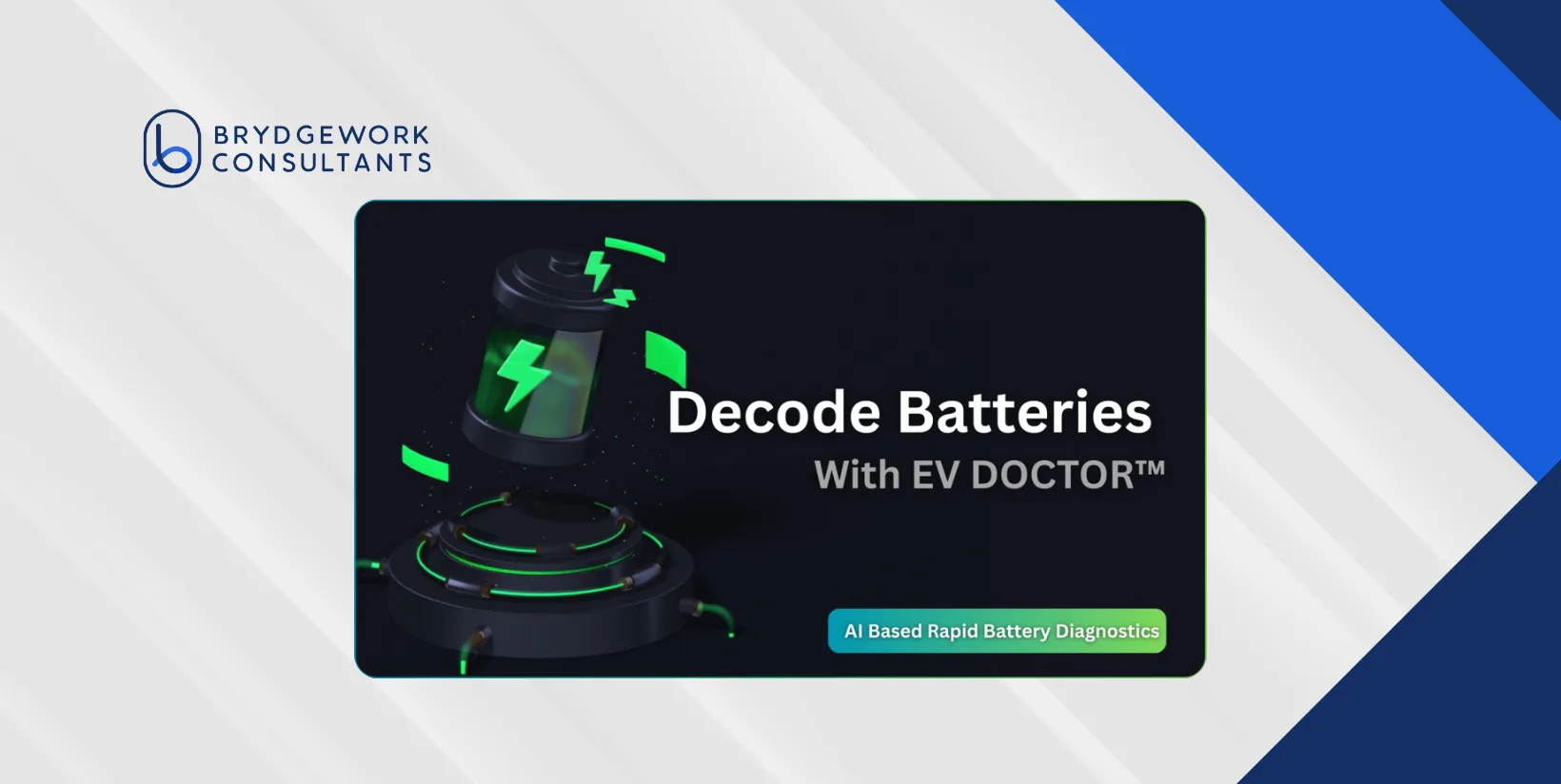
When we talk about India’s electric vehicle revolution, the spotlight is usually on big cities and flashy new EV models. But the real test of this transition is happening in smaller towns, where everyday riders and local workshops struggle with invisible battery problems and limited tools to fix them. That’s where Shubham Mishra steps in. As the founder of Battery Ok Technologies, he created EV Doctor, a smart, portable diagnostic tool that helps mechanics identify battery issues in just minutes. His mission is simple but powerful: save customers money, build trust in small garages, and give local businesses a fighting chance in the fast-changing EV market.
In this candid conversation with Brydgework Consultants, Shubham opens up about the challenges, the wins, and why fixing batteries might just be as important as selling EVs.
The biggest problem was that battery issues were invisible. In smaller cities, a mechanic couldn’t tell if a battery was weak, abused, or simply dead. So, either the customer paid for a full replacement, or the battery kept failing on the road. Both were painful.
I spent months sitting in workshops, watching this frustration play out. That’s when I realized that if we could give these workshops a way to diagnose batteries in just 15 minutes, it would save money, build trust, and give them an edge.
The validation was simple: every workshop I spoke to said, “If this works, I’ll use it tomorrow.”
We designed EV Doctor to directly hit these pain points:
Honestly, logistics and people were bigger hurdles than tech. Shipping to remote towns was unpredictable, and many mechanics had never worked with digital tools before.
We made EV Doctor “idiot-proof”: Bluetooth-based, offline-first, with app instructions and lifetime free updates.
Over time, when customers saw that two different workshops gave the same test report, that consistency started building real trust.
The mantra was “design for chaos”. Assume there’s no internet, no clean workbench, and very little patience.
That’s why EV Doctor is lightweight, portable, and doesn’t rely on external infrastructure. The accuracy comes from embedding physics-based algorithms that run locally, so workshops get lab-grade results without needing a lab.
We never sold EV Doctor as “new tech”. Instead, we told mechanics: “You already know what’s wrong. This machine just proves it on paper.” That shifted it from a threat to a tool of empowerment.
We also ran live demo camps and put up “EV Doctor Tested” stickers at workshops. Suddenly, customers started asking, “Do you have an EV Doctor?” and mechanics who didn’t felt left out.
That peer pressure worked better than any sales pitch.
There’s a workshop in Jodhpur I’ll never forget. A fleet of EV scooters kept coming back with heating complaints. The mechanic used an EV Doctor and found that nearly half the batteries were genuinely weak.
Instead of wasting money on trial-and-error fixes, the fleet operator got replacements approved. Within two months, that mechanic became the go-to expert in town. His customer base doubled, not because of flashy marketing but because people trusted the EV Doctor report in his hand.
We made the math simple. One test costs the customer ₹150–300. A workshop does about 20 tests a week, and the device pays for itself in under a month.
We also remind fleet operators: avoiding even one unnecessary battery replacement saves tens of thousands of rupees. That’s when they stop seeing it as an expense and start seeing it as a money-saving, trust-building machine.
Policies today focus on selling more EVs, not sustaining them. In the field, MSMEs struggle with warranty disputes, fake batteries, and zero support on diagnostics.
If policy made independent diagnostics mandatory for warranty claims and second-hand battery sales, it would instantly formalize the market. It’s a small regulatory tweak with a massive impact.
Workshops are already expanding into these areas. With EV Doctor, they can:
This transforms a small garage into a multi-service energy hub, far more profitable than just fixing punctures and brakes.
The biggest help would be bridging scale and trust. Consulting firms can:
At the end of the day, startups like us can innovate fast, but scaling to India’s heartland needs trusted partners who know the ground realities as well as we know the technology.
July 20, 2025 | Pallav Singh
Walk through any of India’s burgeoning startup hubs, be it Bangalore, Gurgaon, Hyderabad, and you’ll hear the language of the…
Read More
July 3, 2025 | Hemant Kumar
“GST is not just a tax reform; it is a path-breaking legislation for New India.” — Narendra Modi Introduction: A…
Read More
June 25, 2025 | Pallav Singh
Introduction In recent years, Indian customers across telecom, e-commerce, banking, and other sectors have faced growing frustration with support services.…
Read More